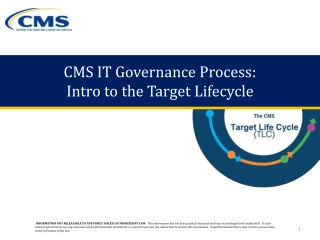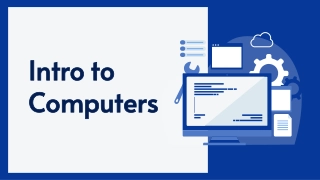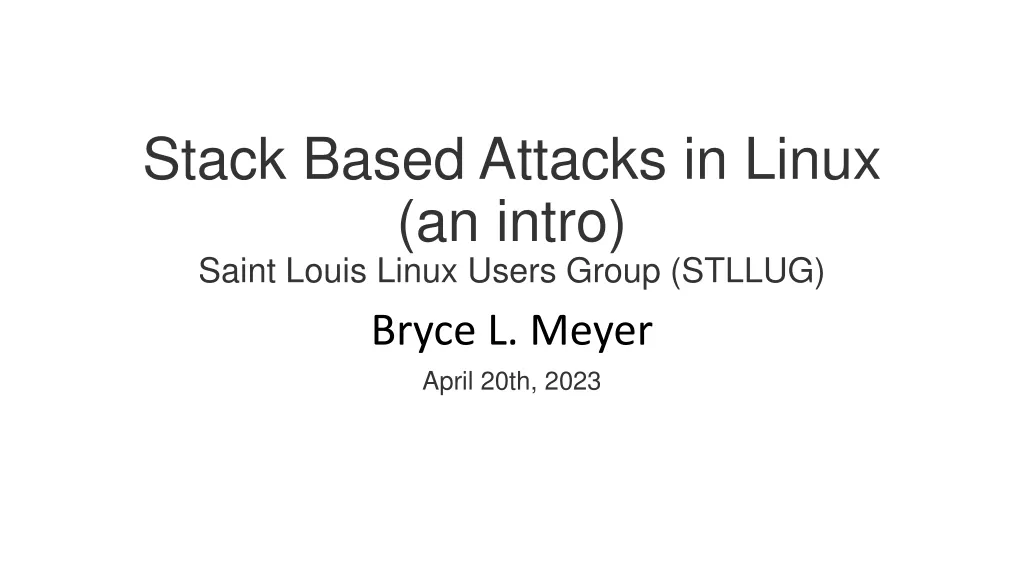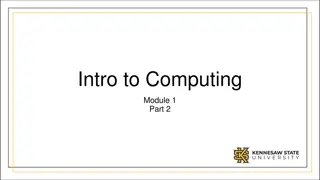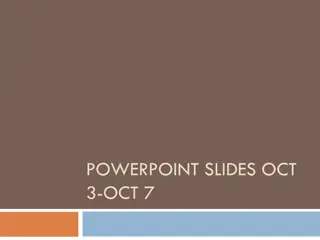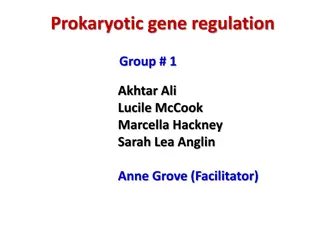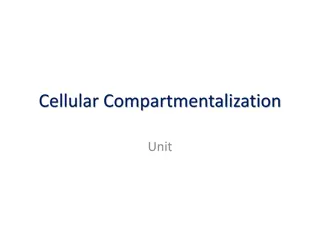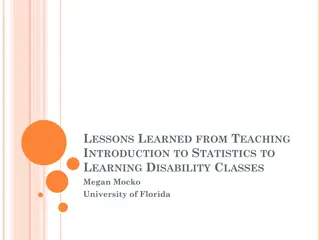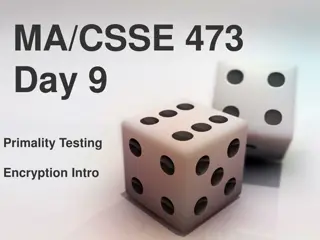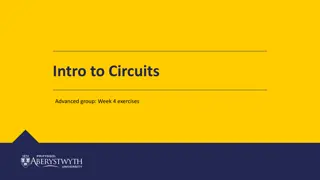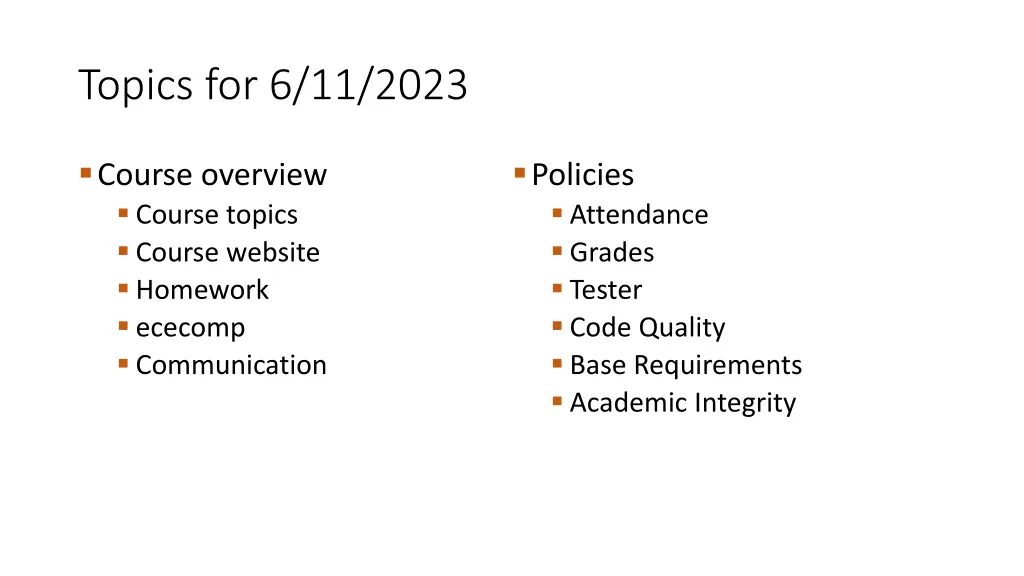
Programming Course Overview and Resources
Explore the comprehensive overview of a programming course covering topics like recursion, data structures, programming environment setup, academic integrity, and more. Get insights into the learning objectives and additional C programming language concepts to enhance your skills. Access homework submission guidelines, communication channels, and essential tools for the course. Dive into a structured learning environment to boost your programming maturity and problem-solving abilities.
Download Presentation

Please find below an Image/Link to download the presentation.
The content on the website is provided AS IS for your information and personal use only. It may not be sold, licensed, or shared on other websites without obtaining consent from the author. If you encounter any issues during the download, it is possible that the publisher has removed the file from their server.
You are allowed to download the files provided on this website for personal or commercial use, subject to the condition that they are used lawfully. All files are the property of their respective owners.
The content on the website is provided AS IS for your information and personal use only. It may not be sold, licensed, or shared on other websites without obtaining consent from the author.
E N D
Presentation Transcript
Topics for 6/11/2023 Course overview Course topics Course website Homework ececomp Communication Policies Attendance Grades Tester Code Quality Base Requirements Academic Integrity
Learning Objectives Recursion Files Structures Dynamic Structures
Other topics C programing language Data representation Strings Memory management Complex data structures Preprocessor Build automation: Makefile ANSI color codes Software Engineering Writing bigger programs Avoiding bugs Testing and debugging Development tools TDD and unit testing Code quality standards Overall want you to achieve programming maturity and think like a programmer
Programming Environment Will connect to ececomp using a SSH terminal such as PuTTY Will use tools such as: VIM GCC GDB Valgrind Working with ISO C11
ececomp Linux server maintained by ECN Located at ececomp#.ecn.purdue.edu # can be 1, 2, 3, or 4 Different from eceprog Old server was ecegrid
Course Website https://engineering.purdue.edu/ece264/23su/
Homework Setup Get: 264get hw## Submit: 264submit hw## ##.c ##.c ##.h Submit often! You will not be penalized for extra submissions Pretest (optional): 264test hw##
Pretester Starting with HW02, many homework will have a pretester Use after you are sure your code works Not a substitute for your own testing Not necessary to complete an assignment 100% on the pretester does not guarantee 100% on the HW Will try to get the pretester out around 2 days before HW deadline
Communication Course website Contains homework, grades, syllabus, policies, code quality Announcements Sent via email and posted on Piazza TA office hours Instructor office hours Piazza Preferred over email for any questions which may benefit other students Brightspace Mostly unused, will contain mostly lecture recordings
Attendance Must either attend lecture or watch recorded lecture via Brightspace Do not join office hours if you have not watched the latest lecture If you are unable to attend class for an extended period, let me know ASAP so we can work on accommodations
Grades Semester grade is based almost entirely on homework May have quizzes as well, more details will follow if implemented Homework is weighted based on number of days to complete Weights are based on a 16-week semester The lowest homework will not be dropped, instead letter grades have more lenient requirements Extra credit opportunities: Homework bug bounty Extra credit homework
Grades (cont.) Many homework will have partial credit Late homework accepted, keeps best score between each late period Homework is due 11:59:59 PM according to the clock on ececomp (EST) Homework submitted within 24 hours is loses 30% of possible points Homework submitted 24-48 late hours loses 50% of possible points Homework submitted 48-72 hours late loses 70% of possible points Code must compile with the arguments specified on the syllabus Memory errors (reported by Valgrind) are subject to a 40% penalty Code quality violations may be penalized 2% per rule violated
Tester and regrades Majority of homework graded based on an automated tester If you believe the tester graded you inconsistently with the homework description, you can make a regrade request Details on regrade requests can be found on the scores page
Code Quality Linked as Standards on course website, or directly at https://engineering.purdue.edu/ece264/23su/code_quality Code quality is not about specific formatting Goal is to write clean code Clean code has fewer bugs, and makes bugs easier to debug Clean code aids in understanding your code
Base requirements (important!!!) All required files must be included in a single submission All required files must be named as specified in the assignment description Code must compile on ecegrid with gcc v8.3.0 (64-bit Linux) with: -g -std=c11 -Wall -Wshadow -Wvla -Werror -pendantic Code must run on ecegrid well enough to be tested Code must finish in a reasonable amount of time Function signatures and data types must match specification Any main( ) functions must return EXIT_SUCCESS Code must follow policy on academic integrity Failure to meet these 8 requirements may result in zero credit
Academic Integrity Do your own work, a good grade requires you learn the material well Cheating is unfair both to those who do work honestly and to those who cheat Cheating defeats the purpose of the course: to teach and ensure proficiency in advanced C programming First instance of cheating may result in a 0 on the assignment Further instances of cheating may result in an F in the class
Integrity Definitions Copying reproducing any kind of data (code, text, test cases, ) by any means (copy-paste, copying files, hand-typing, ) from one source to another Trivial modifications changes such as whitespace, variable names, function order, constant values, or changes that affect the appearance but not intellectural content of the material Attribution explcately acknowledging the source of copied content in the following format: /* Credit: <author>, <description>, <url_or_location> */
Authorized sources Code you have written yourself Starter code from 264get Names of C standard library functions and keywords Any other source explicitly allowed by your instructor (with attribution)
Unauthorized sources Code from Stackoverflow, Github, Wikipedia, or any other website Code from the textbook or any other book Test cases copied from assignment descriptions Snippets provided by the instructor (unless marked Ok to copy/adapt ) Code written by another student
Cheating Copying code from any unauthorized source, even with trivial modifications Allowing another student to copy your code Using unauthorized means to altar or affect grades, submission timestamps, contents, or anything else affecting grades Sharing your code from this class in public locations after the class, such as Github You may retract any homework submission by emailing the instructor, Syllabus has more details
Grey areas Discussing abstract ideas and high-level algorithms with TAs or other students is allowed and encouraged Do not directly write code with other students Helping a friend find a bug in their code Do not directly make edits to their code and avoid suggesting specific edits Learning from code on the web is allowed, provided you are not copying it. Abstract ideas is allowed, but not copying code Very generic code snippets, such as how to call a function or include statements. These should not require copying as you should know them from memory

